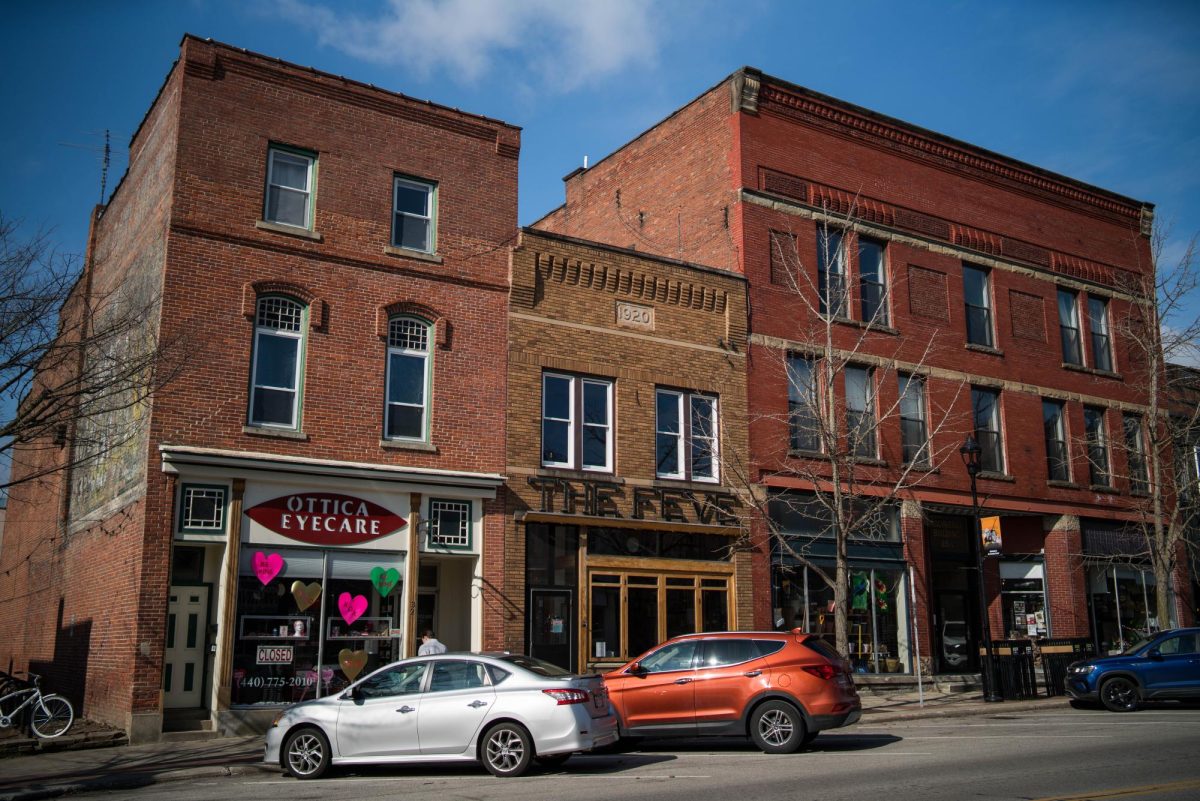On April 1, Oberlin City Council voted unanimously to enter a one-year contract with Florida-based transportation company Slidr Inc. to provide public transportation within the City of Oberlin. This year-long pilot program will run along a fixed route, with proposed stops including Mercy Health – Allen Hospital, Kendal at Oberlin, IGA, Oberlin Community Services, Oberlin Public Library, and Walmart, among others at apartment complexes. There will also be at least one stop on Oberlin College’s campus.
Slidr cites its goals as “helping cities build strong communities and drive economic development by providing stress-free, low-cost, and eco-friendly transportation alternatives,” according to its website. All of Slidr’s “microtransit” offerings are zero-emission vehicles. In addition to all-electric vehicles, Slidr also provides what it calls “micromobility,” which consists of electric scooters, mopeds, and bikes.
While Oberlin does have an existing public transit system, known as Oberlin Connector, it has posed accessibility issues for many members of the community.
“We’ve had that bus service with a partnership through Lorain County Transit for many years,” said Linda Arbogast, sustainability coordinator for the City of Oberlin. “This bus has been going out of Oberlin, it goes through parts of Amherst, Elyria, and Lorain … [but] because people have been using it for medical appointments and shopping and work, all sorts of things and things they need to do outside of the city, one outcome has been that that bus isn’t available in Oberlin when residents, especially those with mobility issues and those who don’t drive, need to get somewhere in Oberlin.”
The transit provided by Slidr will consist of two 11-passenger vans, which are all electric and wheelchair-accessible. Slidr will provide the chargers for the vehicles as well.
The issues that Arbogast mentioned are also listed in the proposed contract with Slidr that was sent to City Council. The proposal which was sent to council March 26 states that over the past two years, ridership on Oberlin Connector has increased, meaning that the vehicles are present in Oberlin less often.
“Oberlin residents who rely on public transit are finding that their needs are not being met for rides within the City limits,” the background section of the proposal reads. “To address this situation, City staff are proposing to add a fixed route service to provide local trips in Oberlin.”
This service will be free for all users. The contract with Slidr will be paid for half by the City of Oberlin and half by Lorain County Transit via federal transit grant dollars. Each party will contribute $68,000.
City Councilmember Joe Waltzer expressed optimism about the contract.
“I think it sounds like a great plan,” he said. “I think it will allow people to get around town and not need a car as much or people who don’t have a car to have an easier time not even having to walk to work.”
While he said that the route may receive some tweaking, he thinks that the service will be very helpful for Oberlin residents.
“I’ve used a similar service,” he said. “My town was much bigger, but I used to use our public transportation for routes all the time when I was growing up. And I think it was great to have that where I grew up, and I think it’ll be a benefit for Oberlin.”
Arbogast said that she thinks that the service will make public transportation more accessible in Oberlin in multiple ways.
“Many people have said that they would use public transport if it was easy and it was known where the buses would be,” she said. “Some people are very reluctant to use the dial ride service because it requires them to call the dispatch and set up a schedule and they can’t just walk out their door and go to a bus stop.”
She also hopes that this model of all-electric microtransit will serve as an example for other towns in the region.
“We are very pleased that the commissioners are supporting this in Oberlin, and that they have other microtransit options starting in Lorain and Elyria,” she said. “We also hope that an all-electric version of this will be a model that we can ultimately share with our neighbors.”






